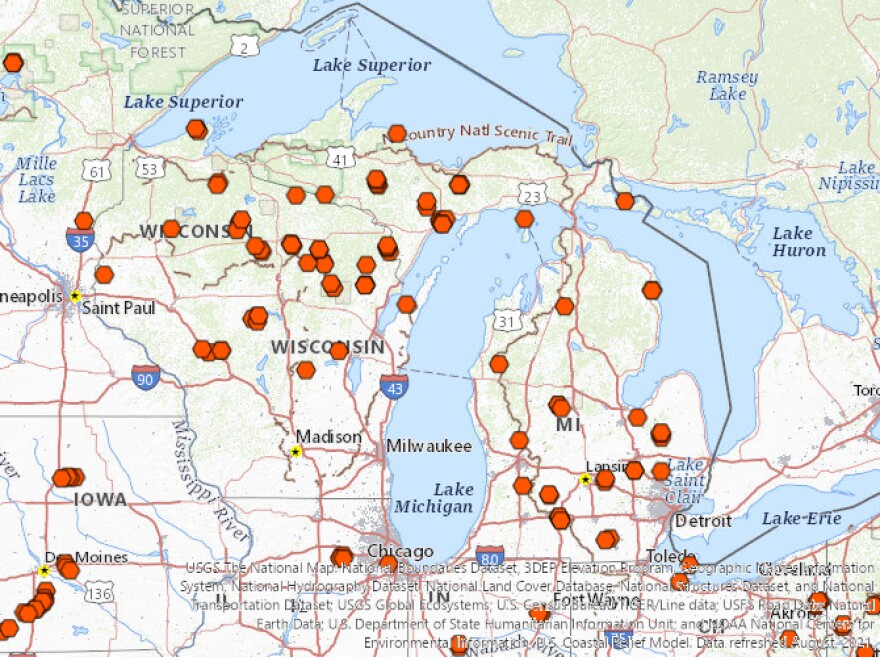Hundreds of geographic features and landmarks in the United States will soon have new names, including 28 sites in Wisconsin.
Those sites currently hold the name of a derogatory term for indigenous women.
In Lac du Flambeau, the interim tribal natural resources director, Dee Ann Allen, and her daughter say this change was a long time coming.
Allen is used to hearing slurs slung her way because of her race.
She went to Lakeland Union High School at the peak of the spearfishing controversy, and was taunted by protestors and classmates alike.
“It was always a negative, foul swear word they were saying to bring you down,” Allen says.
A generation later, those derogatory terms have not gone away.
Allen’s daughter, Kenadi Mayo, reports similar experiences.
“I was a good volleyball athlete, so even in high school, in the areas up here, at the schools I’d go to, I’d be slurred at from the stands because I was so good, but also because it was very obvious I was a native player, and a woman,” she says.
“They would literally slur and do other noises and chants toward me while I was playing. This happened at Rhinelander High School. But even carrying on in college, I had one of my teammates ask me if I still lived in a teepee. Obviously, I responded harshly, but it just shows how uneducated today’s society still is.”
These jeers and slurs aren’t just thrown about casually by high school rivals, they are written into the names of streets and lakes and creeks across Wisconsin.
That includes in the Northwoods, in Vilas, Forest, Lincoln, Langlade and Price counties.
But soon, some of those names will change.
U.S. Department of the Interior Secretary Deb Haaland has ordered geographic features with the offensive term to be renamed.
For indigenous women like Allen, that is a big deal.
“This is one word – squaw – that will give hope to indigenous women, that they mean more than that term,” Allen says.
Federal officials are now seeking ideas from the public for new names for these sites.
Allen hopes some can take on the names they were originally given by indigenous people hundreds of years ago.
“It’s like we’re carrying these messages from our mothers and grandmothers that are no longer here, that have fought so hard back then in more difficult situations,” she says. “Hopefully they are up there looking down and smiling that it’s gotten to this point in time.”
It’s a point in time that Allen hopes marks a shift, so that her newborn granddaughter can grow up in a better world.





